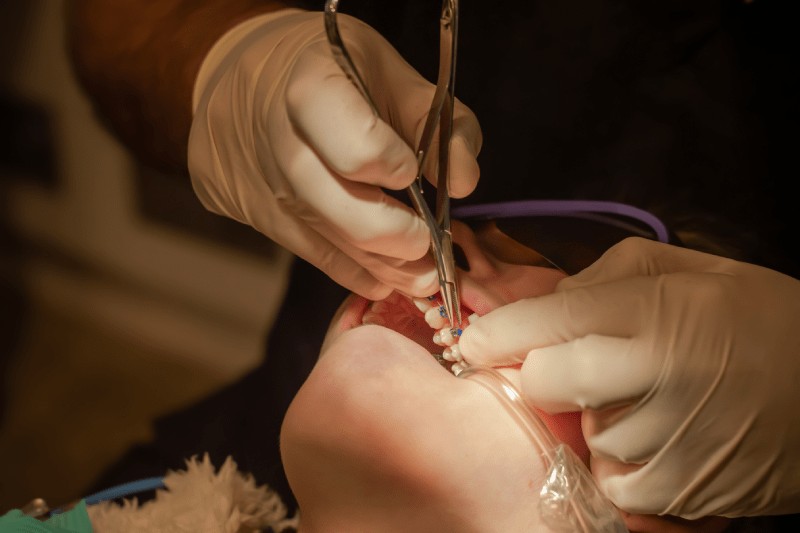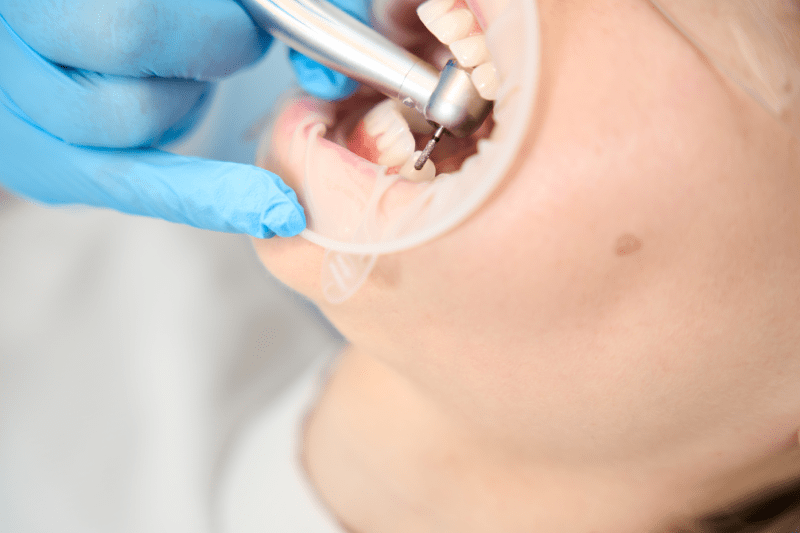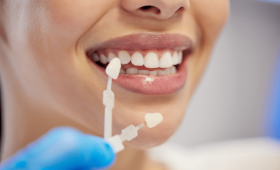Why Do Dental Veneer Prices Vary From Country to Country?
Dental veneer prices are affected by many factors such as the general economic conditions of countries, labor costs, the quality of materials used, technological infrastructure, and the location and prestige of clinics. In Western European countries like Belgium, prices are generally higher due to high living and labor costs. On the other hand, these costs are lower in Turkey, which significantly reduces the total cost. The difference in exchange rates also plays a major role in pricing.
What is the Average Cost of Dental Veneers in Belgium?
The average cost of dental veneers in Belgium varies depending on the type of material used (porcelain, zirconium, etc.), the number of teeth to be covered, and the dentist’s experience. Generally, the cost of a single porcelain veneer can range from 800 to 1,500 Euros. This pricing reflects the high-standard clinic services and the use of quality materials in the country. The total cost for the entire treatment can differ significantly depending on the procedures performed.
What is the Average Cost of Dental Veneers in Turkey?
The average cost of dental veneers in Turkey is considerably lower compared to Belgium. The average price for a single porcelain veneer ranges from 150 to 400 Euros. The main reasons for the price difference include lower labor and operational costs, low taxation, and the advantage of the exchange rate. These lower costs make Turkey an attractive destination for patients coming from both Europe and other countries.
Why Are Dental Veneers Cheaper in Turkey Than in Belgium?
The primary reasons for dental veneers being cheaper in Turkey include lower overall living and labor costs. Rent for dental offices, staff salaries, and laboratory expenses are lower compared to Belgium. Furthermore, the government’s policies to promote tourism and the favorable exchange rates make the cost even more appealing to foreign patients. These factors allow for more affordable prices without compromising on quality.
What Factors Affect The Cost?
The most important factors affecting the cost of dental veneers are the type of material used (for example, zirconium, E-max, or conventional porcelain), the number of teeth to be covered, and the patient’s overall oral health status. Other factors include the city where the clinic is located, the dentist’s experience, and the technology used (such as CAD/CAM). Additional procedures, such as gum treatment or root canal therapy, can also increase the total cost.
Are Zirconium Veneers More Expensive Than Porcelain Veneers?
Generally, zirconium veneers are slightly more expensive than porcelain veneers. The higher durability and biocompatibility of zirconium, as well as its more complex production process, create this price difference. Zirconium also meets high aesthetic expectations due to its translucency and close resemblance to natural teeth. For this reason, it is considered a worthwhile investment for patients seeking a long-lasting and aesthetic solution.
Can I Get Insurance Coverage for the Cost of Dental Veneers?
In Belgium, some private health insurance or supplemental plans may provide a certain percentage or a specific amount of reimbursement for cosmetic dental treatments like veneers. However, this depends on the details of your insurance policy and whether the veneer is deemed a medical necessity. In Turkey, such treatments are generally not covered by health insurance, and the entire cost is borne by the patient. It’s essential to check your policy details for insurance coverage.
Are There Any Hidden Costs in Dental Veneer Treatment?
In both countries, it is important to ensure that all costs are included when receiving a quote for dental veneers. Hidden costs may include initial consultation fees, X-rays, anesthesia, temporary veneers, or additional gum treatments. Especially for international travel, expenses like accommodation, transportation, and translation services should also be included in the budget. It is best to request a detailed treatment plan and a cost breakdown from the clinic for transparent pricing.
Is the Quality of Clinics in Turkey Lower Than in Belgium?
The quality of clinics in Turkey can be equivalent to or even better than those in Belgium. Turkey, especially in the field of health tourism, has made significant investments, featuring modern clinics equipped with the latest technology and experienced dentists who have received world-class training. Quality depends not on price, but on the clinic’s accreditations, the dentist’s expertise, and patient reviews. Many Turkish clinics provide services that comply with international quality standards.
Which Country Provides Faster Results for Dental Veneer Treatment?
The duration of the treatment depends on the number of teeth to be covered and the chosen method. Clinics in Turkey can usually manage appointments more flexibly, allowing patients to complete the entire treatment in a short period. The veneering process can often be completed within a few days. In Belgium, due to appointment density and procedural timelines, treatment can take several weeks. Therefore, for patients with time constraints, Turkey can offer a faster option.

How Much Do Flights and Accommodation Cost When Traveling for Treatment?
Travel costs for dental veneer treatment vary greatly depending on the country, city, season, and type of accommodation chosen. Flights from Belgium to Turkey can be quite affordable, especially with early booking. Accommodation costs also differ based on the hotel’s star rating. Clinics in Turkey often offer packages that help patients with travel and accommodation arrangements.
What Are the Advantages and Disadvantages of Porcelain Veneers?
The biggest advantages of porcelain veneers are that they offer a high aesthetic appearance similar to natural teeth and are resistant to staining. The surface of porcelain is very smooth and does not change color over time. However, porcelain veneers are more fragile than other options and require an irreversible reduction of the tooth structure. The treatment process is usually longer and the cost is higher compared to other materials.
What Are the Advantages and Disadvantages of Composite Veneers?
Composite veneers are more economical than other types and can usually be completed in a single visit. A major advantage is that they require minimal or no reduction of the tooth structure. However, composite material is not as durable as porcelain and is more prone to staining and discoloration over time. Its average lifespan is shorter than porcelain, and it may need to be renewed with periodic maintenance.
How Long Does the Dental Veneer Procedure Take?
The dental veneer procedure varies depending on the type of veneer and the number of teeth to be treated. Porcelain veneers typically require two or three visits. In the first visit, the teeth are prepared and impressions are taken, and in the second visit, the veneers are tried on and bonded. Composite veneers can usually be completed in a single visit, within a few hours. A special acceleration option for the treatment may be offered in Turkey.
Are Dental Veneers Painful?
During the dental veneer procedure, local anesthesia is usually applied, so the patient does not feel any pain or discomfort. A slight sensitivity may be experienced during or after the preparation of the teeth, but this usually disappears within a few days. The dentist may recommend pain relievers to alleviate this discomfort. This procedure is generally considered a non-invasive cosmetic procedure.
What is the Lifespan of Dental Veneers?
The lifespan of dental veneers varies depending on the quality of the material used, the patient’s oral hygiene, and chewing habits. Porcelain veneers can last 10-15 years or longer with good care, while composite veneers typically last around 5-7 years. Regular dental check-ups and good oral hygiene are very important to extend the life of the veneers.
What is the Best Material for Dental Veneers?
The best material depends on the patient’s needs, budget, and aesthetic expectations. The best materials are generally zirconium and E-max. Zirconium offers high durability and biocompatibility, while E-max veneers provide superior aesthetic results because they have translucency similar to natural tooth enamel. Your dentist will help you choose the most suitable material for you.
Do Dental Veneers Prevent Tooth Decay?
Dental veneers create a protective layer by covering the front surface of the tooth, but they do not completely prevent tooth decay. The natural tooth underneath the veneer can still decay if proper oral hygiene is not maintained. Therefore, regular brushing, flossing, and dental check-ups are of great importance to extend the life of the veneers and protect dental health.
Will My Teeth Be Sensitive After Dental Veneer Treatment?
It is normal to experience a slight tooth sensitivity after dental veneer treatment, especially for a few days immediately after the procedure. This can occur due to the abrasion of a part of the tooth enamel. Generally, the sensitivity decreases and disappears within a few days. Your dentist may recommend special toothpaste or mouthwash to reduce this sensitivity.
Do Clinics in Turkey Provide Patient Follow-up?
Yes, modern clinics in Turkey that work in the field of health tourism place great importance on post-treatment patient follow-up. Most clinics stay in touch with their patients after treatment and assist them in scheduling check-up appointments. Patient follow-up is generally done via email, phone, or video conferencing.
What Happens If Dental Veneers Break or Get Damaged?
Dental veneers can break or crack as a result of excessive pressure or impact. In such a case, the veneer may need to be completely replaced or repaired. Porcelain veneers usually cannot be repaired when they break and are replaced with a new one. Composite veneers, on the other hand, can usually be easily repaired on-site.
Why Might You Have to Wait Longer for a Veneer in Belgium?
In Belgium, it may take longer to get an appointment for treatment and complete the process due to the busy schedules of dentists and longer laboratory procedures. Especially for cosmetic dentistry, as it is a highly demanded field, waiting times can increase.
Do Dental Veneers Affect the Gums?
Improperly placed or designed veneers can cause irritation, inflammation, or recession of the gums. Veneers that are properly applied by a qualified dentist are placed in harmony with the gums and do not negatively affect oral health.
Which Country Offers More Options for Dental Veneers?
Both countries offer a wide variety of dental veneer options for different aesthetic and functional needs. Turkey, due to competition in health tourism, tends to offer a wider price range and different brand materials.
Is a Visa Required to Travel to Turkey for Dental Treatment?
The visa requirement for traveling to Turkey depends on the patient’s nationality. Belgian citizens do not need a visa for tourist travel to Turkey. However, it is important for citizens of other countries to check their visa requirements.
What are the Warranty Processes for Dental Veneers in Belgium and Turkey?
Most clinics, both in Belgium and Turkey, provide a warranty for dental veneers. The warranty period and conditions vary by clinic but are generally between 5-10 years. The warranty usually covers manufacturing defects or issues related to the veneer itself.
How Much Research Should I Do Before Getting Dental Veneers?
Conducting extensive research before getting dental veneers is very important to choose the right clinic and dentist. It is necessary to examine the clinic’s and the dentist’s previous work, patient reviews, and the warranties they offer.
How Does the Dental Veneer Treatment Process Work?
The treatment process usually starts with the initial consultation, followed by the preparation of the teeth, taking impressions, fitting temporary veneers, and finally bonding the permanent veneers.

Is Special Care Required After Getting Dental Veneers?
No special care is required for dental veneers. They should be brushed and flossed regularly just like normal teeth. Also, it is important to avoid biting hard foods and habits that can damage the veneers.
Can Teeth Whitening be Done With Dental Veneers?
The color of veneers cannot be changed with a teeth whitening procedure. If you are considering whitening, you should do this before the veneers are placed. Otherwise, a color difference will occur as your natural teeth whiten while your veneers remain in their original color.
Is it Safe to Get Dental Veneers in Turkey?
Yes, getting dental treatment in Turkey is quite safe as long as you choose the right clinic and dentist. Clinics supervised by professional organizations like the Turkish Dental Association have high hygiene and safety standards.
What Kind of Support is Offered Under Medical Tourism in Belgium and Turkey?
Clinics in Turkey, as part of medical tourism, generally offer packages that include services such as flights, accommodation, airport transfers, and translation. Such support is limited in Belgium.
Are There Payment Plans for Dental Veneers?
Some clinics, both in Belgium and Turkey, may offer payment plans or installment options for dental veneer treatment. This depends on the clinic’s financial policies. There may also be discounts for cash payments.
What Technologies are Used in Dental Veneer Treatment?
Today, digital dentistry technologies are widely used in dental veneer treatment. Intraoral scanners for digital impressions, CAD/CAM systems for veneer design, and 3D printers allow for more precise and faster results. These technologies are available in both Belgium and Turkey.
Can There be a Gap Between Dental Veneers and Teeth?
Veneers that are properly applied by a professional dentist are designed to fit perfectly with the tooth, leaving no gaps. A gap between the veneer and the gum can lead to future gum problems or decay. Therefore, choosing an experienced dentist is very important.


